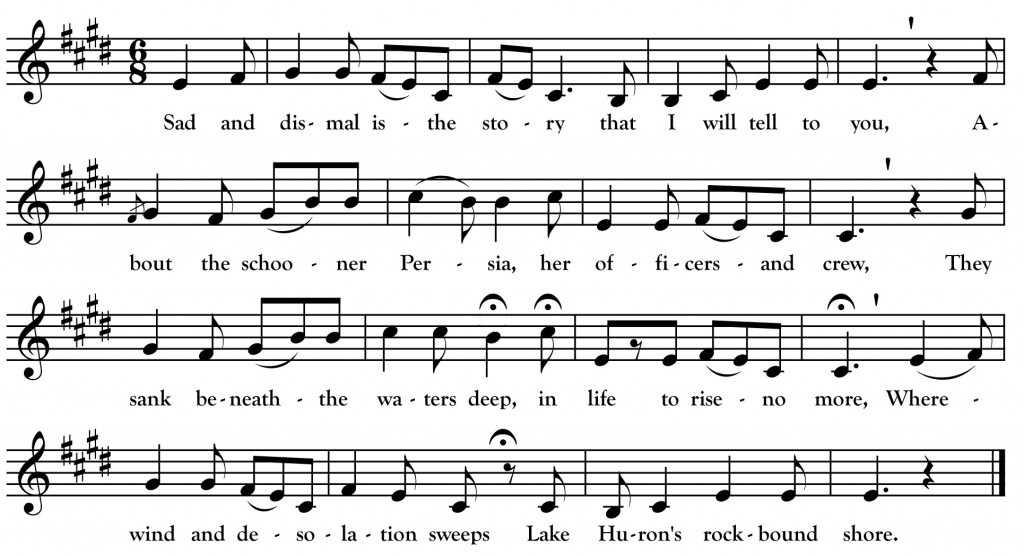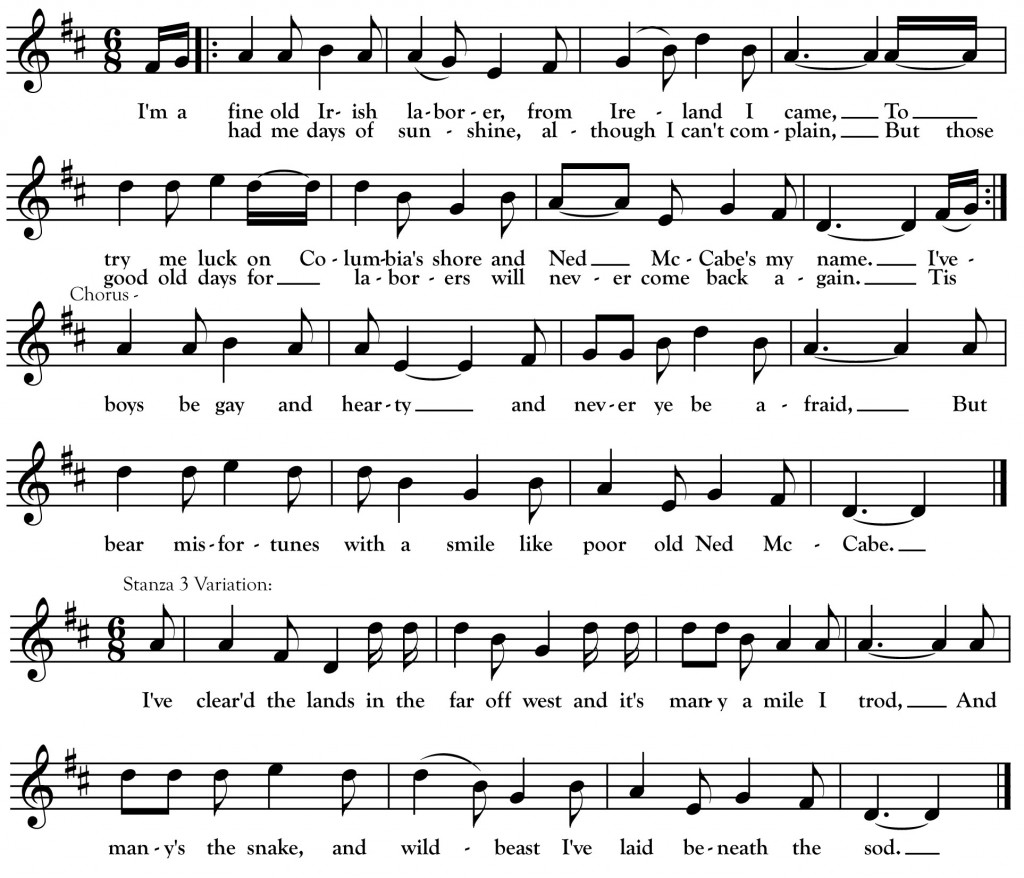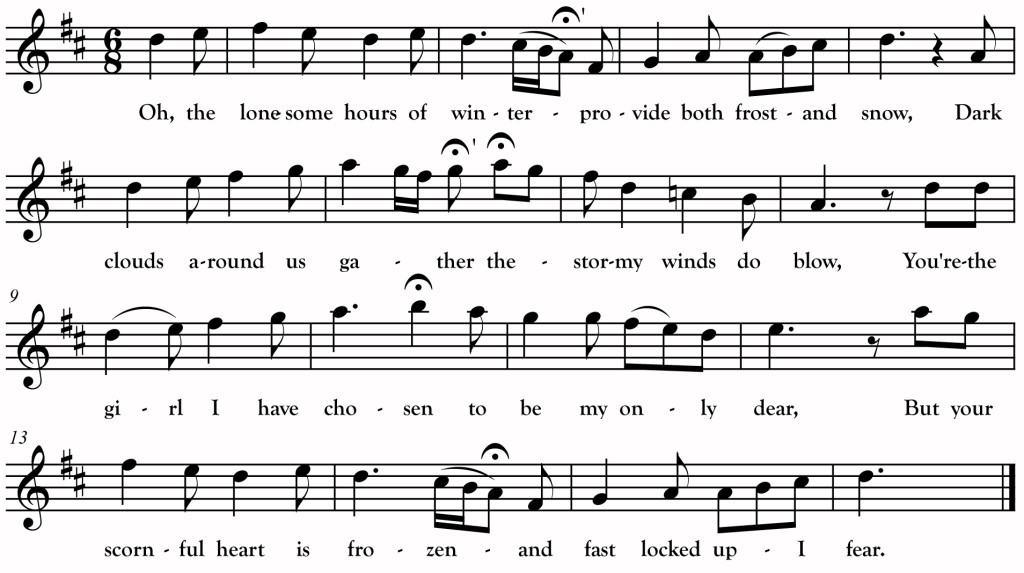Persian’s Crew (Laws D4)

(The version in the video is based on the one below but includes my own deviations which are, in part, on purpose and, in part, due to forgetfulness!)

Sad and dismal is the story that I will tell to you,
About the schooner Persia, her officers and crew;
They sank beneath the waters deep in life to rise no more,
Where wind and desolation sweeps Lake Huron’s rock bound shore.
They left Chicago on their lee, their songs they did resound,
Their hearts were filled with joy and glee, for they were homeward bound;
They little thought the sword of death would meet them on their way
And they so full of joy and life would in Lake Huron lay.
In mystery o’er their fate was sealed, they did collide, some say,
And that is all that will be revealed until the judgment day;
But when the angels take their stand to sweep these waters blue,
They will summon forth at Heaven’s command the Persian’s luckless crew.
No mother’s hand was there to soothe the brow’s distracted pain,
No gentle wife for to caress those cold lips once again;
No sister nor a lover dear or little ones to moan,
But in the deep alone they sleep, far from their friends and home.
Her captain, he is no more, he lost his precious life,
He sank down among Lake Huron’s waves, free from all mortal strife;
A barren coast now hides from view his manly, lifeless form,
And still in death is the heart so true that weathered many a storm.
There was Daniel Sullivan, her mate, with a heart as true and brave,
As ever was compelled by fate to fill a sailor’s grave;
Alas, he lost his noble life, poor Daniel is no more,
He met a sad, untimely end upon Lake Huron’s shore.
Oh, Daniel, Dan, your many friends mourn the fate that has on you frowned,
They look in vain for your return back to Oswego town;
They miss the love glance of your eye, your hand they’ll clasp no more,
For still in death you now do lie upon Lake Huron’s shore.
Her sailors’ names I did not know, excepting one or two,
Down in the deep they all did go, they were a luckless crew;
Not one escaped to land to clear the mystery o’er,
Or to lie adrift by Heaven’s command in lifeless form ashore.
Now around Presque Isle the sea birds scream their mournful notes along,
In chanting to the sad requiem, the mournful funeral song,
They skim along the waters blue and then aloft they soar,
O’er the bodies of the Persian’s crew that lie along the shore.
______________________________________________________
We are back to the repertoire of Minnesota singer Michael Cassius Dean this month with the second of two Great Lakes shipwreck songs (see N.S. Feb. 2013 for the other) recorded from Dean by folklorist Robert Winslow Gordon in 1924. As usual, the text is from Dean’s songster The Flying Cloud and the melody is my transcription of the Gordon recording.
The schooner Persian was headed from Chicago to its home port of Oswego, New York with a cargo of grain in the fall of 1869 when it was caught in a heavy storm just east of the Straits of Mackinac. The eight-man crew was never heard from again. The song began as a poem penned by Oswego man Patrick Fennel, a dear friend of the Persian’s first mate Daniel Sullivan. Fennel’s pen name was Shandy Maguire.[1] The melody used by Dean and other Great Lakes sailors and lumbermen who set the poem to music was one used for many songs in the region. Dean himself used the same air for “As I Rode Down Through Irishtown” (see N.S. Mar. 2013).
[1] Walton, Ivan H. / Joe Grimm. Windjammers: Songs of the Great Lakes Sailors. Detroit: Wayne State Univ. Pr., 2002, p. 191.


